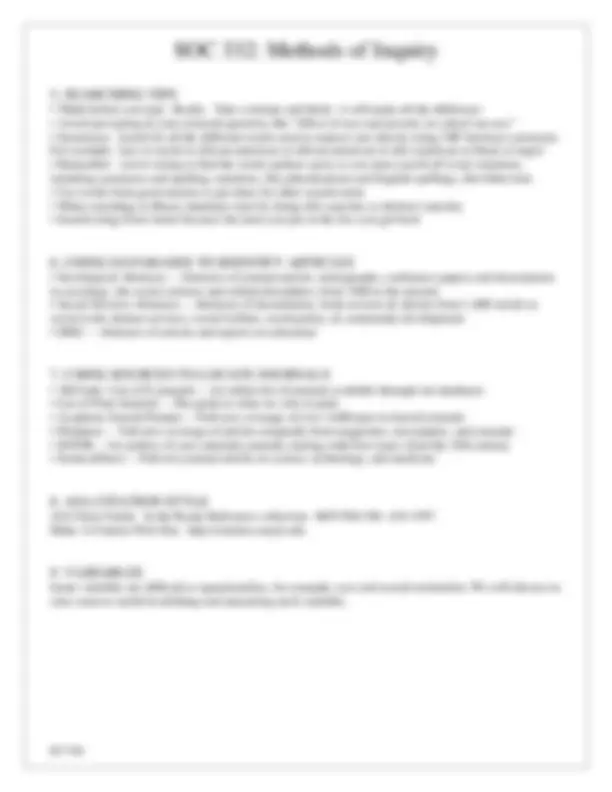



Study with the several resources on Docsity

Earn points by helping other students or get them with a premium plan


Prepare for your exams
Study with the several resources on Docsity

Earn points to download
Earn points by helping other students or get them with a premium plan
Community
Ask the community for help and clear up your study doubts
Discover the best universities in your country according to Docsity users
Free resources
Download our free guides on studying techniques, anxiety management strategies, and thesis advice from Docsity tutors
An overview of the process of conducting academic research in sociology, with a focus on finding and citing peer-reviewed journal articles. It covers the definition of a refereed journal article, the difference between keyword and subject searching, and tips for using databases and sources to identify relevant articles. It also introduces the asa citation style.
Typology: Assignments
1 / 2

This page cannot be seen from the preview
Don't miss anything!


Write a literature review using at least 5 articles of original research.
A journal covers new developments in scientific, scholarly and professional topics and has articles which are based on qualitative and quantitative research; therefore, journal articles typically supplement a lack of advertising and photographs with graphs and charts of data. Journal articles are generally more in- depth and unbiased than articles from newspapers and magazines, which tend to cover news and current events, and journal articles almost universally cite references, where newspapers often deliberately do not identify their sources. There are several qualities that help identify journals:
There are two ways to search for information: to search by word and to search by idea. To search by word is called keyword searching -- keyword just means important word. In keyword searching you determine your search terms; you have greater flexibility but you must try multiple searches using different spellings and synonyms in order to match all the variations authors could use. Consequently, you will get results not related to your idea. Alternatively, to search by idea is called subject searching. Subject searching is very organized and uses only librarian-determined terms; you find your terms -- usually called Subject Headings or Descriptors -- and you search for them. Try using this procedure:
Term 1 Term 2 Term 3 race poverty academic achievement racial AND income AND school success ethnic class ethnicity socioeconomic
Use ‘OR’ between synonyms
Use ‘AND’ between terms
For example: race or racial or ethnic or ethnicity AND poverty or income or class or socioeconomic
RF 7/
AND academic achievement or school success
ASA Style Guide: In the Ready Reference collection: REF HM 586 .A54 1997 Make A Citation Web Site: http://citation.sunyit.edu
Some variables are difficult to operationalize, for example, race and sexual orientation. We will discuss in class sources useful in defining and measuring such variables.
RF 7/